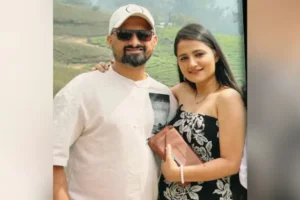
During the first phase of the Bihar Assembly Elections 2025, a remarkable 64.66% of eligible voters cast their votes. It is the highest percentage since the elections were first conducted in 1951, the Election Commission of India (ECI) reported. Chief Election Commissioner Gyanesh Kumar said it was an election with the “most accurate electoral rolls”. It is considered to be an important victory for the state’s democracy.
Commissioner Kumar pointed to new transparency and engagement processes claimed “Bihar has set an example for the country.” There were no appeals regarding the Special Intensive Revision (SIR). We had the highest level of voter turnout in several years. All part of a larger project to increase the integrity of elections and place emphasis on participation by voters in the 18 districts consisting of 121 constituencies.
Technological Knowledge and Management
Also, in Bihar, for the first time, all 45,341 polling places were monitored. It was live streamed from the Election Commission Control Room located in New Delhi. The ECI also made another significant change in the Election Commission of India (ECI), in determining the maximum number of voters per booth, down from 1,500 to 1,200, which created a better way to manage the crowd.
Some minor confusion ensued for voters in terms of locations due to some polling places being changed. Many of these were sent to a different booth, such as Sourav Kumar of Patna. Notwithstanding these concerns, officials swiftly assisted voters via online programs, help desks and call centres.
Different Aspirations of the Voters of Bihar
Also, the voters of Bihar had different expectations — ranging from basic services and job opportunities to women’s safety and the provision of health services.
Ajay Kumar Singh (60), from Kidwaipuri, expressed a desire for improved health services for older people.
Abhishek Sinha (44) stressed the need for a stable and dignified government. Noting the importance of law and order, he stated that all governments should strive for this.
These different perspectives express the changing aspirations of the voters of Bihar who are dedicated to a more resilient and inclusive state.
Calm and Safe Voting Process
According to the Bihar Police Headquarters, the voting process was calm across all 18 districts.
The process went smoothly with over 400,000 election personnel and an elaborate security network.
Key elements of security coverage included:
- 1,500 units of CAPF, 50 units of Bihar Military Police and 45,000 officers from district police were assigned.
- Drones, mounted teams, vessels and satellite phone used for round-the-clock monitoring.
- 459 border points were sealed off 48 hours prior to the voting to avoid potential illegalities.
- Preventive action led to the recovery of 3.04 lakh litres of liquor, drugs worth ₹19.26 crore, valuables worth ₹4.26 crore and ₹7.35 crore in cash and inducements all were evidence of proactive auditing against vote buying.
There was a minor confrontation between Deputy CM Vijay Kumar Sinha and RJD MLC Ajay Kumar in Lakhisarai, but the situation was quickly defused without any significant altercations.
New Methods for a New Way of Voting
This phase showcased innovations that are voter-centric, enhancing transparency and accessibility:
- Voters will now be able to identify candidates using colored photos on ballots for EVM machines.
- Voters’ experience was augmented through the introduction of deposit kiosks for their mobile phones and a reimagined Voter Information Slip.
- Wheelchairs, volunteers/aides, and e-rickshaws were made available to assist senior citizens and voters with disabilities.
- Over 90,000 Jeevika members and female volunteers were instrumental in ensuring the process ran smoothly.
- International observers, as part of the International Election Visitors’ Programme (IEVP), alongside representatives from six nations, stated that the Bihar elections were “transparent, participative and a model for elections for the globe.”
Looking Ahead: Phase two and beyond
Bihar celebrates their democratic milestone, but planning is already underway for Phase Two on November 11, which includes 122 constituencies. The counting of votes will take place on November 14.
Chief Election Commissioner Gyanesh Kumar concluded by praising citizens and election staff saying, “Bihar has set a new paradigm in voter turnout, in the use of technology, and in facilitation for voters.” It was truly a celebration of democracy characterized by respect and order. This remarkable election in Bihar is not simply in recent news updates, but also a fantastic precedent for citizen engagement, security, and transparency and adds to the complexity of Indian democracy.






Logging in to bet10login needs to be easy, and this site delivers. No hassles, straight to the action. If you’re already a member, this is your direct line. Quick login via bet10login.
399betgame huh? Betting and games, a classic combo. I’m not much of a betting man myself, but maybe I’ll give it a shot. Maybe your luck’s better than mine: 399betgame!
Multibett, hey what’s up? Tried it out last week and gotta say, the selection is pretty decent. Nothing groundbreaking, but solid. Give it a shot! Check them out here: multibett
Thank you for your sharing. I am worried that I lack creative ideas. It is your article that makes me full of hope. Thank you. But, I have a question, can you help me? https://accounts.binance.info/pt-PT/register-person?ref=KDN7HDOR
Ninecassino4 is pretty decent. I like their live casino section, feels just like being there which is cool. Good for a casual night of playing. Give it a shot guys! ninecassino4
7m.cn.macau is my go-to when I need accurate sports data. Never disappoints. A must have for every serious punter. You can find it here: 7m.cn.macau.
The sv388app.org app is smooth and easy to use. The graphics are amazing and they pay out pretty quickly. Pretty solid overall for anyone into this type of action I think. Give sv388app a download. You won’t regret it.
7mcnmacao for the win! For real, solid info on Macau games. Keeps me in the know. Check it 7mcnmacao out!
Been using Betrupeesapp for a while now. The app is actually pretty decent, loads quickly and easy to navigate. Definitely recommend giving it a look! betrupeesapp
11winvn, Alright! Sounds like a place with potential. Still need to check it more detailed. If you try it, let me know what you think! Check it out here : 11winvn
57bet me surpreendeu! Apostas esportivas com odds competitivas e um cassino online bem completo. Já tô usando direto 57bet.
Spribewingame? Hmm, that name rings a bell… I think my buddy mentioned it. Said it’s worth checking out if you’re looking for something new. Get the goods at spribewingame.
Ah, 188vbet. A classic, really. Huge range of options, and usually pretty decent odds. Can’t go wrong with 188vbet. A reliable choice, that’s for sure.
NW88online’s calling my name tonight. Hoping for some decent odds and a bit of luck. Anyone else playing tonight too? Easy navigation at nw88online is what I like.
Sign-up and login are very simple, so I am very happy to recommend fb777registerlogin. It’s great for an evening of fun! Click fb777registerlogin
Man, I love watching ‘gà chọi c1’! The intensity is insane. Gotta check this site for the latest. gà chọi c1.
Hey everyone! Jilibetcom is worth checking out. The platform is user-friendly, and the games are interesting. Maybe I will get lucky!. Give it a try: jilibetcom
Strayjuego’s got a cool vibe. The graphics are nice, and the games are pretty engaging. If you looking for new place, click here: strayjuego
Alright, poker faces assemble! PKR333’s got some sweet poker action. Decent traffic and some pretty soft tables if you ask me. See you at the tables when you join pkr333!
I besides conceive so , perfectly indited post! .